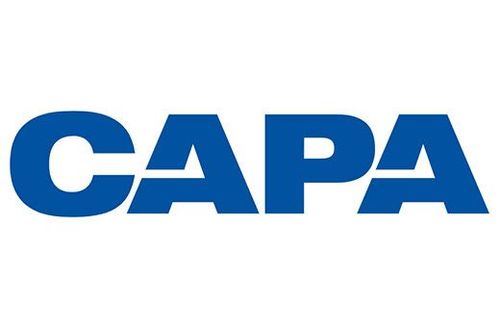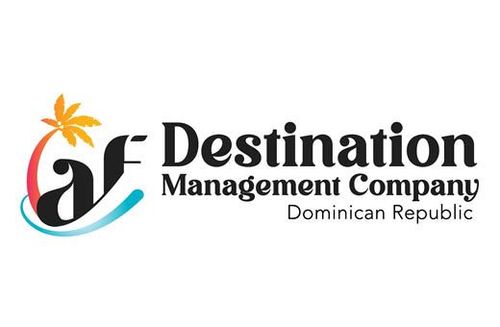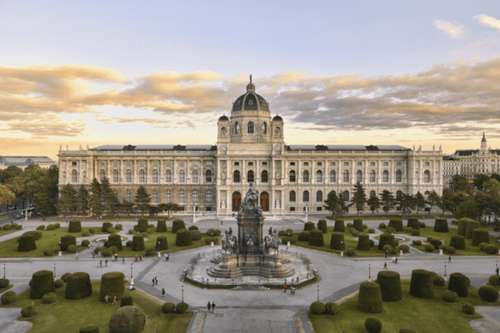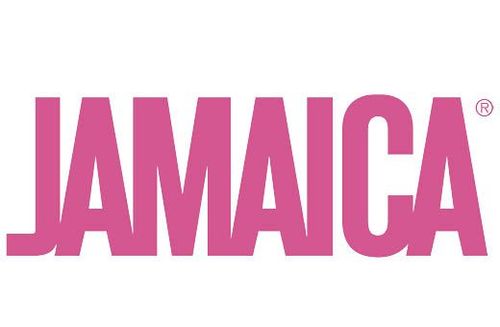Where travel agents earn, learn and save!
News / Brexit and aviation: all's well that ends. Well, almost...
Traffic rights between the UK and EU are preserved, with no limits or price regulation
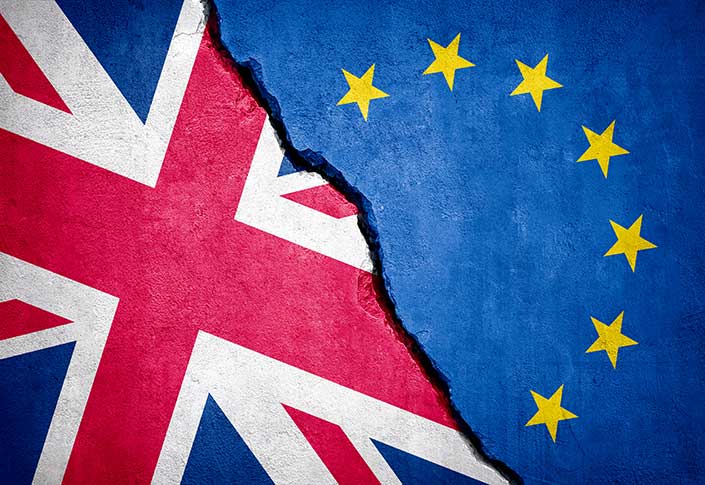
January 8 - The trade agreement agreed between the UK and the EU on December 24, 2020 came into force on December 31, 2020, four and a half years after the UK voted for Brexit. It runs to 1,449 pages, of which 26 deal with aviation.
Brexit was never about improving the European aviation system, but there were major concerns that the existing conditions would be seriously eroded. These have mostly been avoided, even if the outcome is less than optimal.
Compared with the situation where the UK was a member of the European single market, the new agreement represents an unprecedented reversal of liberalization in aviation. There are wrinkles to be ironed out on the subject of airline ownership and control, causing some airlines to go through unnecessary contortions, and there is at least some risk of divergence over time in areas such as aviation safety and consumer protection.
Nevertheless, compared with old-style bilateral agreements – and certainly compared with the threat of ‘no deal’ – it is still a pretty liberal agreement that preserves the regulatory status quo as much as possible without actually keeping the UK in Europe’s single aviation market. The main impact is likely to be felt indirectly through Brexit’s economic impact.
For now, however, that is masked by the impact of the COVID-19 crisis.
Traffic rights between the UK and EU are preserved, with no limits or price regulation
Third and fourth freedoms, i.e. the rights to fly to and from each other's territory, are preserved. This ensures the majority of the traffic involving UK and EU destinations for the majority of airlines of both sides.Moreover, the traffic rights come with no limits as to capacity, frequency, aircraft or other pre-liberalization features of bilateral agreements. Tariffs (air fares) will continue to be freely set by the market under competitive conditions.
Codeshare and block space agreements are allowed on routes where the airline has relevant traffic rights.
Cabotage rights are removed, but this makes little practical difference
The most obvious change to market access rules is that UK airlines no longer enjoy traffic rights inside the EU (or the wider European Aviation Area), whether within one member state or between different member states, and EU airlines no longer enjoy domestic UK traffic rights (so-called 'cabotage rights').In practice, this change does not make much difference to networks already in operation. Airlines that took advantage of these rights previously have established subsidiaries to preserve them.
The only UK airlines with significant intra-EU capacity in the years after the Brexit referendum in 2016 were bmi regional, which ceased operating in early 2019, and easyJet, which has effectively become an EU-owned airline (see below).
Among EU airlines, Ryanair has only a small domestic operation, but established a UK subsidiary to maintain this part of its network. Its UK subsidiary also allows it to operate between the UK and non-EU destinations under bilaterals between the UK and those third countries.
Wizz Air has a UK subsidiary for similar reasons. EasyJet’s UK domestic routes are operated by its UK subsidiary.
UK subsidiaries of these EU airlines are treated as UK airlines for reasons outlined below under the paragraphs on ownership and control.
Cargo fifth freedoms are permitted
There are no longer fifth freedom rights for passenger traffic, so airlines from either side cannot continue services to a third country. Cargo fifth freedoms are permitted if agreed between the UK and individual EU member states bilaterally.
Ownership and control restrictions are mainly as expected…
In terms of restrictions on ownership and control, the agreement looks largely as might be expected in an air services bilateral, but with an important exception.In order to gain the traffic rights between the UK and the EU, airlines from each side must be owned and effectively controlled by nationals of their own side, must have their principal place of business in their own territory, and must hold an AOC from the competent authority in their own jurisdiction.
…but allow UK airlines to be EU-owned
The twist is that the ownership and control test is somewhat relaxed for UK airlines that held a valid operating licence at the end of the transition period on December 31, 2020.They still count as UK airlines if they are owned and effectively controlled by nationals of the EU (or the European Economic Area or Switzerland) or a combination of EU and UK nationals.
This twist will not apply to new-start UK airlines after December 31, 2020.
The new UK-US bilateral also allows UK airlines to be EU-owned
Until the end of the transition period, the UK was also a party to 17 air service agreements between the EU and countries outside the EU, which it needs to replace with bilaterals in its own name.By far the most important of these is with the US. The UK and US signed a new bilateral in November 2020, which now takes effect and preserves traffic rights between the two nations.
It adopts a similar position on the ownership requirements of UK airlines, allowing them to be owned by EU nationals.
Flexibility on UK airline ownership is aimed mainly at British Airways
This flexibility on the ownership of UK airlines appears to be aimed mainly at British Airways, which is owned by IAG.The multinational airline group needs to be majority EU-owned so that its subsidiaries Iberia, Vueling and Aer Lingus could remain EU airlines. This would have caused a problem if it meant that BA no longer qualified as British.
It also allows the UK subsidiaries of other groups that are majority EU-owned to continue to operate as UK airlines. Examples include Ryanair UK, Wizz Air UK and easyJet’s UK subsidiary (the parent group easyJet plc has chosen to become an EU airline – more on that below).
The two sides will look at options for reciprocal liberalization
The UK-EU agreement is not fully reciprocal on this ownership point, since EU airlines cannot be UK-controlled.Intriguingly, however, the agreement says that the two sides recognize the benefits of continued liberalization of ownership and control and agree to evaluate options for reciprocal liberalization within 12 months, and again within 12 months of either party so requesting.
The EU, with the UK when it was a member, has led the world on liberalization, and this hints at a desire for the two parties to continue to push boundaries in this area.
EU airlines have taken steps to ensure EU ownership and control
Meanwhile, the effect of the ownership and control clauses has been to force EU airlines with listed shares to take steps to ensure continued EU ownership and control.Wizz Air has prevented 60% of its ordinary shareholders from voting or attending AGMs, since non-EU shareholders account for 80% of its ownership.
Ryanair is blocking non-EU investors, including UK investors, from acquiring ordinary shares. Existing non-EU shareholders will not be forced to sell their shares, which will be treated as restricted shares, but will lose the right to attend, speak, or vote at any general meeting of the company.
Rather than limit shareholder voting rights, IAG has taken a different approach.
It has implemented a national ownership structure for Aer Lingus and changes to the group’s national ownership structure for its airlines in Spain. These are legal structures that aim to keep voting rights in the subsidiary airlines with nationals of the respective nations, while giving IAG full economic rights.
The remedial plans were approved by national regulators in Spain and Ireland. The EU has been notified, but there is at least a theoretical risk that the EU, or a competitor airline, could object. In addition, the IAG board of directors has been changed to have a majority of independent EU non-executive directors.
EasyJet has begun disenfranchising some shares to ensure continued compliance with EU ownership and control requirements. As of January 1, 2021, its non-EU ownership was 52.65%. The voting rights suspension is being applied on a “last in, first out” basis.
UK airlines have more freedom on wet leasing
Another area where the UK- EU agreement does not appear fully reciprocal is wet leasing. The agreements permits wet leasing by UK airlines from UK or EU operators, but wet leasing by EU airlines must be from EU operators.Other wet leasing arrangements are permitted in exceptional circumstances, for example involving seasonal capacity or operational difficulties, only for a strictly necessary duration.
Ryanair UK recently cancelled a number of flights, operated under wet lease by its Irish parent, blaming a change of policy by the UK’s Civil Aviation Authority. Ryanair attributed this to Brexit, but it is not clear whether or how the new agreement led to this situation.
The two sides aim for close cooperation on safety and security
As the UK's Civil Aviation Authority website now states, the UK is no longer part of EU aviation institutions, including the European Union Aviation Safety Agency. Moreover, there is no comprehensive bilateral agreement on aviation safety between the UK and EU.However, the UK-EU trade agreement includes a section on aviation safety and emphasizes the aim of close cooperation in this area.
This is based on mutual recognition of licences, with each party accepting findings of compliance and certificates issued by the other’s competent authorities. However, acceptance obligations can be suspended after consultation if the other party violates its obligations and fails to take corrective action.
Both sides agree to keep each other informed of proposed changes to safety laws and standards, to give the other the opportunity to comment and to consider such comments.
Both sides also agree to provide assistance to the other on threats to security of civil aviation, and to conform with ICAO standards.
They broadly maintain the status quo in other areas…
Other topics that appear to be aimed at maintaining something close to the status quo include: the transparent and non-discriminatory allocation of airport slots; non-discriminatory application of infrastructure user charges, which must be cost related; cooperation on air navigation services; and the permitting of self-handling by airlines in the other party's territory.
…and aim for a "high level of consumer protection"
There is also a shared objective to achieve a "high level of consumer protection" and cooperation to that effect.There are only sparse details to back this up, but there are references to measures that include assistance for persons with disabilities, and reimbursement and compensation in case of denied boarding, cancellation or delays.
Expect to see UK airlines attempt to diverge from the requirements of EU261 on passenger compensation, by which they are no longer bound.
Expect EU airlines to cry foul if this happens, as they will argue that it departs from the shared objective.
The regulatory impact of Brexit on aviation is minimal - but investor appeal reduced
In the circumstances, the aviation part of the UK-EU trade agreement does a pretty good job in maintaining as much liberalisation as possible.Almost all traffic rights are retained, helped by allowing UK airlines to be EU-owned, and mutual recognition of safety standards helps to ease the separation of regulation in this area.
However, the need for some EU airlines to disenfranchise or block non-EU shareholders is an unfortunate negative consequence of the lack of full reciprocity on ownership and control. It reduces the appeal to investors holding shares in these companies at a time when the airline industry cannot afford to limit access to capital.
Moreover, the durability of mutual recognition of safety standards has yet to be tested over time. As with the approach to consumer protection, there is scope for divergence in the future. This could test the two parties’ commitment to cooperation.
Crucially, the two sides have comfortably avoided the cliff edge scenario of aviation traffic rights ceasing, which theoretically could have led to the grounding of flights between the UK and EU.
Further, they have also ensured that airlines and passengers will hardly notice any change in aviation operations as a result of Brexit – at least, in its regulatory aspects.
More Travel News:
Boeing to pay $2.5 billion over MAX fraud conspiracy
WTTC says new travel measures to curb COVID-19 should replace quarantines
New Coronavirus strategies for Cancun tourism sector being considered
Riviera Nayarit announces new COVID-19 measures for visitors coming from U.S. and Canada



